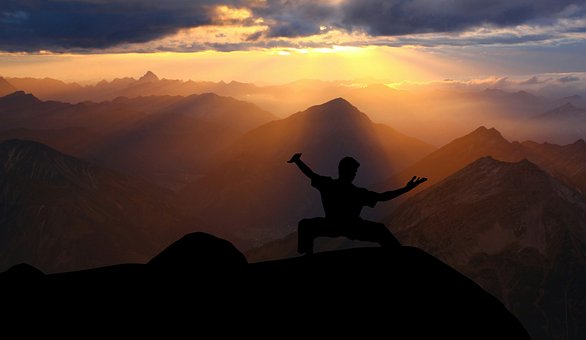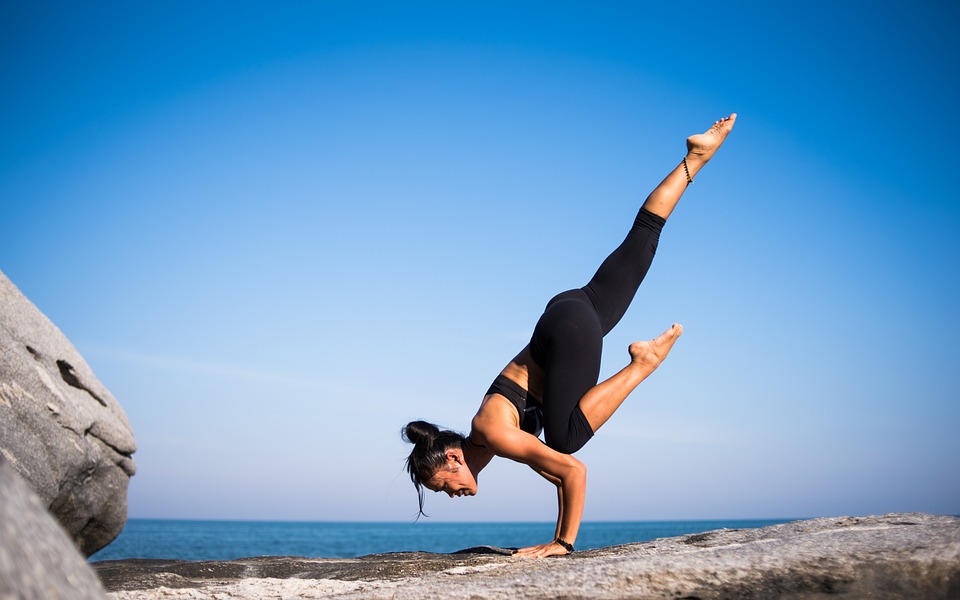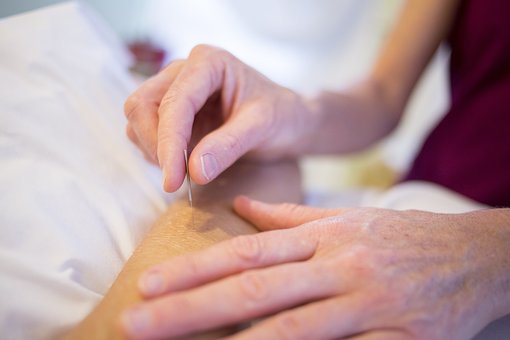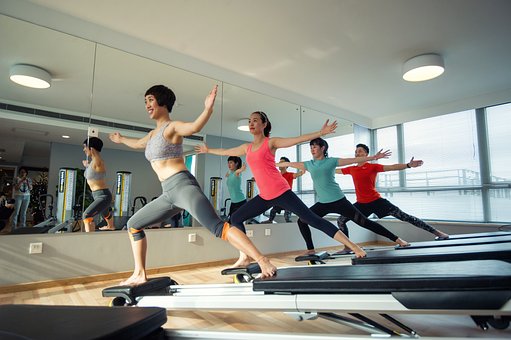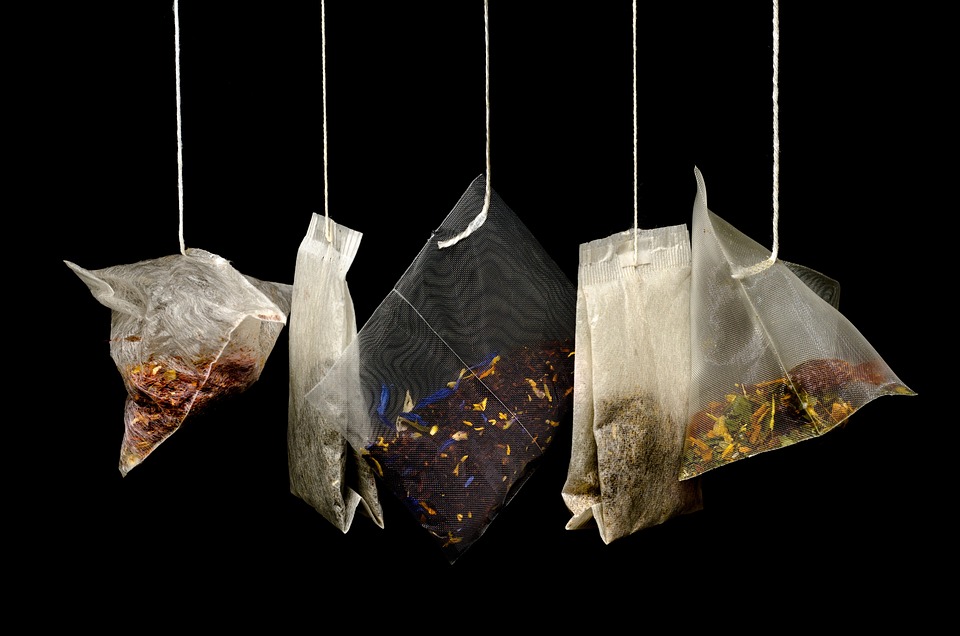
Tai Chi has been employed as an art of self-defense for many years and is known for encouraging physical and mental health.
If you’re curious about trying Tai Chi, it’s not necessarily easy to figure out the advantages, since there is a lot of material to go through. Nonetheless, it could be advantageous for you to know what the benefits are.
What is Tai Chi?
Tai Chi is an age-old Chinese self-defense practice that boosts one’s physical, intellectual, and spiritual energies. This activity is characterized by very gradual, conscious, and soft motions that build strength, equilibrium, and stamina.
This form of self-defense stands out because the emphasis is on breathing and mental composure, similar to what’s done in yoga, but more appropriate for the aging population since it promotes balance as we age. Tai Chi involves directing one’s attention inward to both their breath and their emotions and thoughts. This marks it as an “internal” form of martial arts.
In Chinese medicine, “chi” (also sometimes referred to as qi) is understood to be the life force behind everything. Tai Chi can help you use the power of the universe to heal yourself and make you more energized. The incorporation of breathing, carefully guided motion, and the philosophy behind Tai Chi results in an exercise format that is perfect for elderly individuals looking to remain fit and vigorous as they age. Many elderly citizens of China are known to engage in regular Tai Chi exercises, bringing about excellent outcomes!
Tai Chi is known to bring several advantages, which makes it a commonly accepted form of exercise for managing and treating numerous pains and problems safely and effectively.
In the last 50 years, more than 500 investigations and 120 extensive reviews have praised the advantages of Tai Chi.
As you practice Tai Chi, you may find yourself experiencing:
• Decreased anxiety • Increased physical vigor and endurance • Lessening of long-term aches and pains • Improved mental state • Increased muscular tone and muscular strength • Heightened equilibrium, adaptability, and coordination
Benefits of Tai Chi
Tai Chi has benefits in various spheres, including:
• Mental • Spiritual • Physical
Two Potential Mental Benefits
Nowadays, while mental health is being widely discussed, people are searching for ways to enhance their own. Tai Chi has many different mental health benefits.
1. Can Help Improve Mental Flexibility
Tai Chi relies on slow, intentional, constant movement. At first, a lot of the exercises might feel unfamiliar and unlike the way, you normally move. By doing movements that are not your usual routine, you can assist in stimulating your brain to generate new pathways which can then enhance your mental suppleness and alertness.
The power of your mind to be able to come up with inventive answers in reaction to external signals is referred to as mental or cognitive elasticity. This is what enables you to accomplish many things simultaneously and change your focus between activities and ideas quickly. Having an adaptable mindset is extremely valuable and it is essential to cultivate it in order to enhance the quality of life.
Tai Chi assists in calming you down, both mentally and physically, and gives you the opportunity to refocus and reconnect with your body. By decreasing your stress levels and taking things at a slower speed, your mind is able to reorganize itself. When your physical and mental faculties come together, they can interact harmoniously and your brain develops new neural pathways due to the actions of your body. These new routes can aid your brain in staying dynamic and fit.
2. May Help Improve Your Mood
Nowadays, there is an uptick in despondency and restlessness. As our surroundings become increasingly faster, it is essential to come up with strategies to bring our focus back and decelerate. Tai Chi is a great method for accomplishing this. Stressed-out brains and fried nerves need to rest. Tai Chi’s sluggish, amiable, and mindful motions often provide the rest one needs.
Exercising helps the human brain stimulate the production of endorphins—chemicals within the nervous system that have analgesic properties and give rise to sensations of pleasure.
Tai chi is thought to be beneficial in its ability to promote slow, mindful breaths. It is thought that this type of breathing may be useful for improving the nervous system and stimulating the production of hormones that support emotional regulation.
Two Potential Spiritual Benefits
Tai Chi has benefits beyond the mental and physical. As the mind finds peace, the spirit often follows.
1. Stress Management
Tai Chi’s leisurely pace and movement have a tendency to help the mind concentrate and become attuned to the body’s movements. Performing Tai Chi offers the advantage of allowing people to create mindful moments that shift their focus to the present situation, aiding in de-stress from everyday pressures.
Stepping away from the bedlam of daily living occasionally to reconnect with our inner self is a superb procedure for lessening stress. It might be that the troubles that felt intimidating some time ago now seem a lot more manageable and less formidable.
Ensuring your mental and emotional health is in good condition will give you the robustness necessary for effectively handling stressors and benefitting yourself as well as those close to you. When you do the fundamental exercises of Tai Chi, you may feel more relaxed and healthier overall.
2. Self-Reflection and Connection
Tai Chi is a great way to take your time and slow down, and you may experience epiphanies as a result. Complicated issues can be understood better when you take a break from the hectic activity. Tai Chi gives you an opportunity to get in touch with yourself and reflect on questions you may be unable to ponder otherwise.
Doing Tai Chi enables one to return to the self and establish a link with all parts of themselves.
Three Potential Physical Benefits
There are numerous health advantages to practicing Tai Chi, such as increased muscle strength and improved quality of sleep.
1. May Increase Muscle Strength
One may not consider a group doing Tai Chi to be developing significant muscle strength or shape. They are not exercising with weights nor performing endless reps of push-ups and pull-ups, yet this does not indicate they are not exercising their muscles.
Tai Chi is an exercise that works all of the muscles, putting weight into it, which can help to increase your stamina and strength.
Although you don’t make use of dumbbells or flex bands, your body is relying on itself to complete all the exercises. Making slow and deliberate movements will work the upper and lower body parts in addition to the core muscles.
Slow, controlled movements which are limited can produce a result that is much like weight lifting.
2. Can Boost Physical Flexibility
Tai Chi consists mostly of stretching and performing movements that are not usually done in everyday activities. Exercising like this could assist in enhancing flexibility.
Performing regular, gentle exercises on your joints can contribute to their flexibility and well-being.
3. Can Help Improve Balance
Tai Chi is known for its potential to aid with balance and is also thought to be helpful in reducing the risk of slips or falls.
Proprioception plays an important role in achieving balance, which is the ability to sense one’s body position in space. The inner ear’s sensory neurons, muscles, and ligaments stretch receptors are the essential components of this capacity.
Unfortunately, as people age, a lot of their awareness of where their body is in space decreases, resulting in poor balance, stumbles, and slips.
Tai Chi could potentially help slow down the degradation of certain abilities and may assist in providing surefootedness, which some studies have established could minimize the chance of a fall.
Styles of Tai Chi Good for Seniors
No matter which style of Tai Chi you pick, it is always a very gentle form of exercise. There are many different styles of Tai Chi, but the four primary styles are listed below:
- Chen – This is one of the oldest styles of Tai Chi. It is more focused on Tai Chi as a martial art and a method of self-defense. It is more intense than some other styles, but still very gentle and a good option for seniors who want a more invigorating workout that is also practical as a martial art.
- Sun – In contrast, Sun Tai Chi is one of the newest styles. This style is very smooth, graceful, and high-stance (in comparison to the deep, low stances of other styles). Dr. Paul Lam developed a special Sun Tai Chi style for people with arthritis. This specialized version is less taxing on the joints and was developed to spur a healing response for practitioners.
- Yang – This Tai Chi style is one of the more popular and easily accessible styles when it comes to finding classes and learning materials. It is characterized by movements that are flowing and gentle which are great for seniors who want a low-impact workout.
- Wu – The Wu Tai Chi style is very similar to the Yang style. The primary difference is that the movements with this style are smaller and less dramatic than those in the Yang style.
How many times a week should you do Tai Chi?
You can practice Tai Chi as much as you desire every week! Certain individuals participate in Tai Chi two times daily nearly every seven days. Other practitioners do Tai Chi once a week. You will definitely see more impactful benefits if you practice more frequently. The more consistently you practice Tai Chi, the more powerful the health benefits become.
Tai Chi devotees usually devote an hour or more for each session to practice their martial art. Despite being extremely relaxed and measured in pace, an hour of Tai Chi can be just as exhausting as a more intense physical activity!
For those who have an affliction such as arthritis, it is recommended to partake in Tai Chi for 30 minutes at a time. That’s okay too! In Tai Chi, the leg movements and stances usually involve only a slight up or down the progression of 1 to 2 inches while the arms are being altered in their placement. During this time period, the person holds their stance and this small, yet continual movement, combined with the static postures, has a discernible strengthening outcome on the legs even after brief Tai Chi workouts.
What is the best time to do Tai Chi?
Tai Chi is regularly performed in China in the early hours of the morning or shortly after waking. Presently, Tai Chi practitioners around the globe commonly hold their exercise routines as soon as they have risen in the morning.
Beginning your day with some practice in the morning is an ideal means of getting yourself ready for the events of the day, and it is also a calming activity to set a tranquil atmosphere for the rest of the day. In addition, performing some light activity in the morning signals to your body that it’s time to become alert, resulting in increased vigor, sharper attentiveness, and better spirits.
Many people suggest performing Tai Chi first thing in the day, yet some elect to do it at night just before they go to bed. Tai Chi provides an energizing workout, but can also be incredibly tranquilizing. Tai Chi may be a beneficial way to ready the body for getting some rest. Some folks decide to perform Tai Chi in the early hours and in the evening as well! It is ultimately up to the practitioner to decide when the optimal time for Tai Chi is. A goal of Tai Chi is to pay attention to your body and its needs, so be alert!
Which is better for seniors: yoga or tai chi?
Tai Chi is more lenient on the body compared to yoga. Unless you’re attending a yoga session specifically tailored to elderly individuals and their unique health needs, Tai Chi would be less strenuous than yoga.
Older adults should be mindful not to overtax their bodies with yoga and cause themselves harm (youths can still suffer injuries from yoga too), however, an important principle of Tai Chi is to always practice in moderation.
Tai Chi is an exercise that emphasizes proper body alignment, not pushing one’s body too far, and focusing on the center of your body. Movements are gentle and subtle, but still powerful. Older adults who are deciding which physical activities to start should give special consideration to Tai Chi in comparison to yoga.
Tai Chi can be enjoyed by people of any age group. In comparison to other workouts, elderly adults can join in Tai Chi classes which are usually composed of people of both older and younger generations, instead of having to take yoga classes with just other like-aged individuals to avoid injuries. If you are interested in a course that is not separated by age, Tai Chi could be a great choice!
The Greatest Benefit of Tai Chi
Tai Chi offers a wide range of advantages, from calming anxiety to improving mobility and reflexes, better psychological well-being, increased muscle power, a sense of stability, awareness, and many other positive effects.
What is the primary benefit of Tai Chi?
Achieving equilibrium internally and uncovering the tranquility that comes with being focused.

